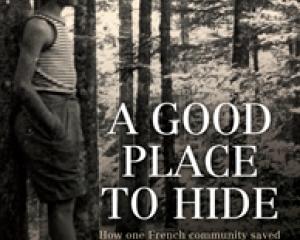
A HISTORY OF SILENCE: A MEMOIR
Lloyd Jones
Penguin
Lloyd Jones has written a book about himself, his parents and his grandparents, and where he came from that made him who he is.
He uses a patchwork of shifting and interwoven narratives that gradually reveal the full complexity and tragedy of a family story that was always there but was hidden from the child and deeply disturbs the man.
It is the past of seemingly ordinary people in an ordinary place, but turns out to be a story of a profound stoicism in the face of deprivation.
The family story is threaded through with the writer's experience of Christchurch after the earthquakes of 2010-11, ''a city cracked open like eggshell, and where I heard no laughter''.
It is as if the sudden eruption of fate that changed the life of the city is like the fateful events of the family saga, where the shells of childhood were cracked and the yolk spilled almost before life had begun.
The child grew up in the spooky silence of family secrets that were never finally uncovered until after the death of his parents and after tireless ferreting in archives and travelling to places associated with the past of those much-loved parents and unknown grandparents.
The family's history is always springing surprises, both for the writer and the reader.
''It astonishes me that none of my siblings, myself included, ever asked the kind of questions that would open up our parents' past. But nothing much was offered to us.''
The book often reads like a memoir of the immigration experience, the unsettling of settlers, who themselves often came from backgrounds of deprivation, sailing so far across the oceans to make something of themselves. For Jones, what we make of ourselves, how we hold ourselves together, is often predicated on how we were made, the experiences we had of life as children.
Jones skilfully gives the reader the point of view of the growing child making the best of things in a charmless Wellington suburb, but as the child becomes the man, and the man wants to find the roots of the particular charmlessness of his own family, the book gathers an urgency and poignancy that at times becomes as painful as pulling flesh across barbed wire, and we become aware the lineaments of grand tragedy can be found in the back streets of Lower Hutt, if the silence that holds together eggshell lives can be broken and the stories told for all of us to hear.
Peter Stupples teaches at the Dunedin School of Art.



